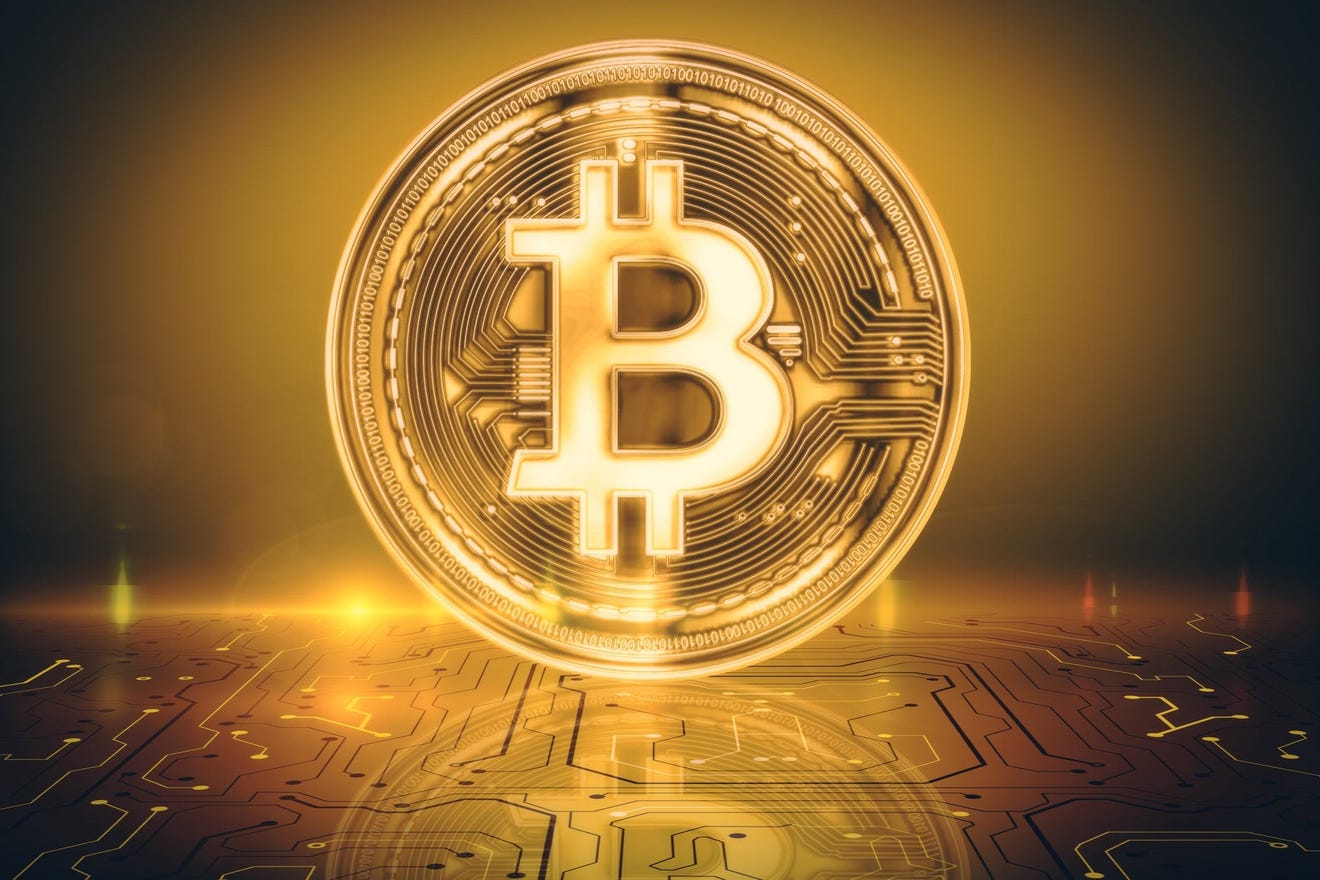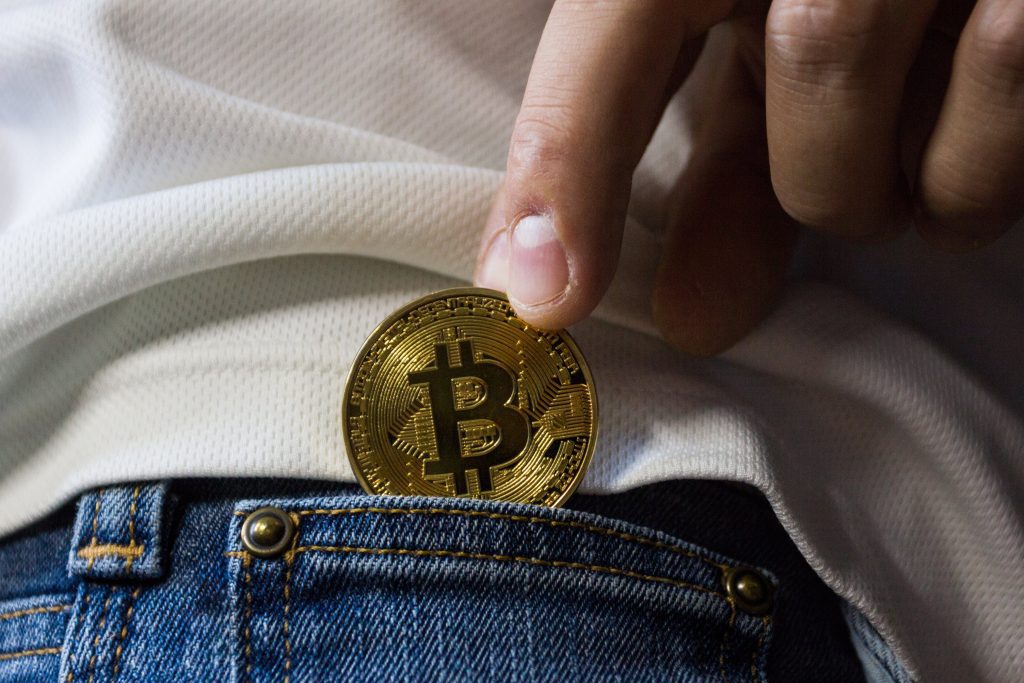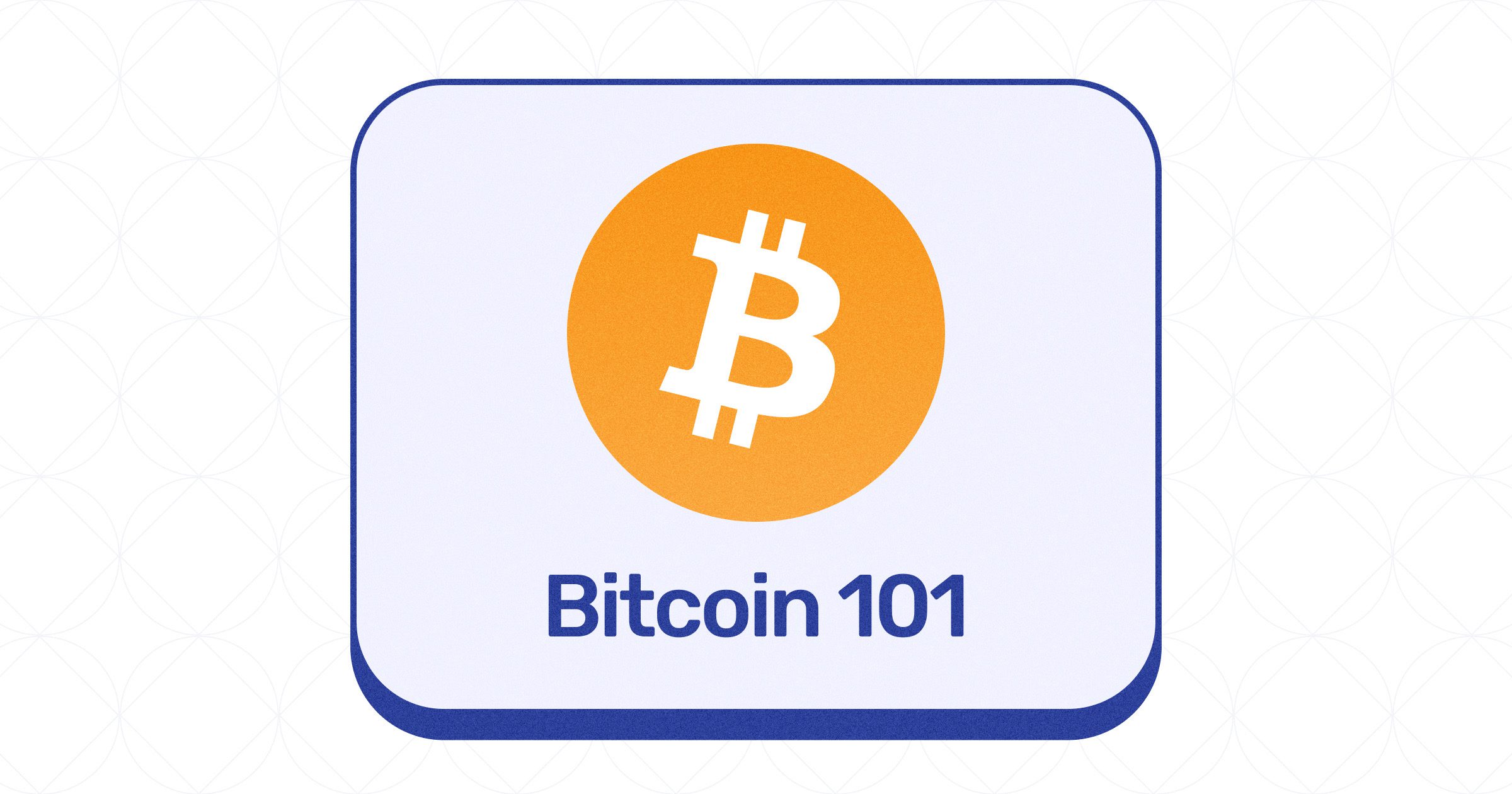Table of Contents
Welcome to the world of Bitcoin, where digital magic meets money! If you’re new to Bitcoin, don’t worry; this article will guide you through the basics in simple terms.
What is Bitcoin?

Bitcoin is a type of digital currency, sometimes called cryptocurrency. Bitcoin is like regular money, but it exists only in digital form. Unlike traditional money, no single person or government controls it. Bitcoin is decentralised, which means it’s not owned or managed by any central authority. Instead, it’s maintained by a network of computers around the world.
How Does Bitcoin Work?
At the heart of Bitcoin is a cool technology called the blockchain. Think of it as a digital ledger or record book. Every Bitcoin transaction is recorded on this public ledger, making it transparent and secure.
When you want to send someone Bitcoin, your transaction is grouped with others into a “block.” Miners, who are like digital bookkeepers, solve complex mathematical puzzles to confirm and add these blocks to the blockchain. As a reward for their work, miners receive newly created Bitcoins and transaction fees.
About Bitcoin Transactions
A Bitcoin transaction is like sending an email, but instead of sending a message, you send some Bitcoin. Each transaction has inputs and outputs. Inputs are the Bitcoins you send, and outputs are where they go.
You might also hear about transaction fees.
What Are Bitcoin Transaction Fees?
Bitcoin transaction fees, also known as network fees, are small amounts of Bitcoin paid to miners to prioritise your transaction. The higher the fee, the faster your transaction gets processed. If the transaction fee is too low, your transaction might take a very long time to be completed.
About Bitcoin Wallets
To use Bitcoin, you need a place to store it, just like you need a bank to store your money. That place is called a “wallet”.
Bitcoin wallets come in various forms:
- Software Wallets: These are apps or programs you can install on your computer or phone.
- Hardware Wallets: Physical devices designed to keep your Bitcoin safe offline.
- Paper Wallets: A piece of paper with your Bitcoin address and private key (more on this below).
Your wallet stores your private key, which is like a super-secret password.
Never share your private key with anyone, and keep it safe! If you lose your private key, you may lose access to your Bitcoin.
Buying and Storing Bitcoin
Getting Bitcoin is easy. You can buy it from online cryptocurrency exchanges. These websites let you trade your regular money (like naira, dollars or euros) for Bitcoin. You can also buy from P2P crypto trading platforms, where you give another person something in exchange for Bitcoin. That ‘something’ can be regular money, PayPal, or another cryptocurrency; in fact, you can exchange gift cards for Bitcoin.
Once you have Bitcoin, you need to store it safely. Hardware wallets and paper wallets are the most secure ways to store Bitcoin. Software wallets are convenient but may be vulnerable to hacks and attacks.
If you are a newbie with not so much Bitcoin, software wallets are fine, but be sure to activate 2FA and use a reliable crypto platform.
Selling and Cashing Out Bitcoin
Selling Bitcoin is easy, especially with a platform like Prestmit. Prestmit is a platform that allows users to sell Bitcoin and other cryptocurrencies in an OTC fashion. Here’s a detailed explanation of selling Bitcoin on Prestmit.
Using Bitcoin as an Investment
People buy Bitcoin for different reasons. Some buy because of its decentralised nature, some buy Bitcoin for online payments, some buy Bitcoin for diversification, some buy Bitcoin for inflation control, some buy Bitcoin for a store of value, some buy, and some people buy Bitcoin as an investment, hoping its value will increase over time.
It’s worth noting that Bitcoin’s price can be very volatile, meaning it can go up and down a lot, which is one of the disadvantages of crypto. So, if you’re buying Bitcoin for investment, be prepared for ups and downs if you invest in it.
I recently wrote an article about why Bitcoin is a good investment; you should check it out. However, be sure you understand what crypto investment is about, and don’t forget to do your own research.
About Bitcoin Mining and Rewards
Bitcoin miners are like digital treasure hunters. They use their computers to solve complex puzzles, and when they succeed, they add a new block to the blockchain. This process is known as Bitcoin mining. In return, they get some newly created Bitcoin and transaction fees.
This process keeps the Bitcoin network secure and running smoothly. This means that without Bitcoin miners, there’ll be no Bitcoin.
What are some of Bitcoin’s Use Cases?
Bitcoin has many uses. It can be a way to:
- Make fast and secure global payments.
- Send money to family and friends anywhere in the world.
- Protect your savings from inflation (when your money loses value over time).
- Buy goods and services from businesses that accept Bitcoin.
- And many more
The Security and Risks Associated with Bitcoin

Bitcoin, like any other financial asset or technology, comes with its own set of security considerations and risks. Here’s a list of some of the key security aspects and risks associated with Bitcoin:
Bitcoin Security:
- Blockchain Technology: Bitcoin’s security is primarily based on its underlying blockchain technology, which is considered secure due to its decentralized and immutable nature.
- Cryptography: Bitcoin uses cryptographic techniques to secure transactions and control the creation of new units. Public and private keys are used to access and control Bitcoin balances.
- Decentralisation: Bitcoin operates on a decentralised network of nodes, making it resistant to single points of failure or control.
- Consensus Mechanisms: Bitcoin uses a Proof-of-Work (PoW) consensus mechanism, which requires miners to solve complex mathematical problems to validate transactions and add new blocks to the blockchain.
- Transparency: All Bitcoin transactions are recorded on a public ledger, known as the blockchain, which allows anyone to audit and verify transactions.
Bitcoin Risks:
- Volatility: Bitcoin’s price is highly volatile, which can lead to significant gains or losses for Bitcoin investors. Sudden price fluctuations can impact its use as a store of value or medium of exchange.
- Regulatory Risks: Governments and regulatory bodies worldwide have varying approaches to Bitcoin. Some may impose strict regulations, while others may adopt a more permissive stance. Some countries even ban Bitcoin altogether. Regulatory changes can affect the legal status and use of Bitcoin.
- Security Risks: While the Bitcoin network itself is considered secure, individual users and exchanges can be vulnerable to hacking and fraud. Phishing attacks, malware, and social engineering are common risks. In my previous article, you can learn how to protect your Bitcoin wallet from hackers.
- Loss of Private Keys: If a user loses their private key or access to their Bitcoin wallet, they may lose access to their funds permanently. There is no way to recover lost private keys.
- Scams and Ponzi Schemes: The cryptocurrency space is rife with scams and fraudulent schemes. Investors must be cautious and conduct due diligence before participating in any investment or opportunity.
- Lack of Regulation: The absence of comprehensive regulation can lead to market manipulation, fraud, and unethical practices in the cryptocurrency ecosystem.
- Environmental Concerns: Bitcoin’s energy-intensive PoW consensus mechanism has raised concerns about its carbon footprint and environmental impact.
- Forks and Upgrades: Bitcoin has undergone several forks and upgrades in its history. While these changes aim to improve the network, they can also create contentious situations and potential for disagreement within the community.
- Market Liquidity: Bitcoin liquidity issues can impact the ability to buy or sell Bitcoin at desired prices, especially during periods of high volatility.
- Legal and Tax Implications: The tax treatment of Bitcoin varies by country, and individuals must comply with tax regulations related to cryptocurrency transactions.
It’s essential for anyone considering involvement with Bitcoin to be aware of these security aspects and risks and to take appropriate precautions, such as using secure wallets, keeping private keys safe, and staying informed about regulatory developments.
Additionally, diversifying one’s investments and not putting all assets into Bitcoin alone can help mitigate some of the associated risks.
What’s the Future of Bitcoin?
Predicting the future of Bitcoin is challenging, as it depends on various factors and is subject to a wide range of possibilities. Bitcoin has experienced significant growth and adoption since its creation in 2009, but its future remains uncertain. Here are some potential scenarios and considerations regarding the future of Bitcoin:
- Increased Adoption as Digital Gold: Some proponents believe that Bitcoin will continue to be seen as a digital store of value, similar to gold. In this scenario, it may serve as a hedge against inflation and economic instability, attracting more institutional and retail investors.
- Integration with Traditional Finance: Bitcoin and other cryptocurrencies may become more integrated into traditional financial systems, with regulated crypto exchanges, ETFs (already approved in the US), and other investment products becoming more prevalent.
- Continued Volatility: Bitcoin has been known for its price volatility, and this may continue in the future. Factors such as market sentiment, regulatory developments, and macroeconomic conditions can influence its price.
- Technological Advancements: Ongoing developments in Bitcoin’s technology, such as the Bitcoin Lightning Network for faster and cheaper transactions, may enhance its utility as a medium of exchange and payment system.
- Regulatory Changes: The regulatory landscape for cryptocurrencies is still evolving. Depending on the approach taken by governments and regulatory bodies, regulations either facilitate or hinder Bitcoin’s adoption and growth.
- Competition: Bitcoin faces competition from other cryptocurrencies and blockchain projects. While Bitcoin has the advantage of being the first and most recognised cryptocurrency, it is not the only one with potential.
- Environmental Concerns: Concerns about the environmental impact of Bitcoin mining due to its energy-intensive Proof-of-Work consensus mechanism may lead to changes in how Bitcoin operates or increased adoption of more eco-friendly cryptocurrencies.
- Geopolitical Events: Geopolitical events, such as government crackdowns on cryptocurrencies or economic crises, can have a significant impact on Bitcoin’s adoption and value.
- Technological Challenges: Bitcoin faces ongoing technical challenges, such as scalability and security. Solving these challenges will be essential for its long-term success.
- Global Economic Conditions: The future of Bitcoin may be influenced by broader economic conditions, such as currency devaluation, hyperinflation, or financial crises, which could drive increased interest in cryptocurrencies as an alternative.
It’s important to note that Bitcoin’s future is uncertain, and its trajectory will depend on how these and other factors interact and evolve over time. Investors and users should conduct thorough research, stay informed about developments, and be prepared for various possible outcomes when considering Bitcoin as an investment or technology.
Additionally, it’s advisable to consult with financial and legal professionals before making any significant decisions related to Bitcoin.
Frequently Asked Questions (FAQs) About Bitcoin
- What is the maximum number of Bitcoins that can ever exist?
Bitcoin has a maximum supply limit of 21 million coins. This limited supply is programmed into the Bitcoin protocol and will never change.
- How can I buy Bitcoin?
You can buy Bitcoin from online cryptocurrency exchanges using traditional money (fiat currency) like US dollars or euros. Popular exchanges include Coinbase, Binance, and Kraken. You can also buy Bitcoin using gift cards from a platform like Prestmit.
- Can I buy a fraction of a Bitcoin?
Yes, you can buy a fraction of a Bitcoin. Bitcoin is divisible, and the smallest unit is called a Satoshi, which is one hundred millionth of a Bitcoin (0.00000001 BTC). So, you don’t need to buy a whole Bitcoin.
- Is Bitcoin anonymous?
Bitcoin transactions are not entirely anonymous. While they are pseudonymous, meaning they don’t reveal your real name, all Bitcoin transactions are recorded on the public blockchain. With the right tools and techniques, someone could potentially trace a transaction back to you.
- What is a Bitcoin wallet address?
A Bitcoin wallet address is a unique string of characters that represents where your Bitcoin is stored on the blockchain. It’s like your account number. You use it to send and receive Bitcoin.
- Can I lose my Bitcoin if I forget my wallet password?
Yes, if you forget your wallet password and don’t have a backup, you can lose access to your Bitcoin, especially if you store your Bitcoin on a centralised exchange. If your Bitcoin is stored on a decentralised exchange, you might not need to deal with a password but only your seed phrase and private keys.
Nevertheless, it’s essential to keep your password and recovery seed (if using a software wallet) safe and secure.
- Are Bitcoin transactions reversible?
Bitcoin transactions are irreversible. Once you send Bitcoin, it cannot be undone. Make sure you double-check the recipient’s address before sending.
- How is Bitcoin different from traditional money?
Bitcoin is digital and decentralised, while traditional money is physical (like cash) and controlled by central banks and governments. Bitcoin transactions are also typically faster and have lower fees for international transfers.
- Can I use Bitcoin to buy everyday items?
Yes, some businesses and online retailers accept Bitcoin as a form of payment. However, it’s not as widely accepted as traditional money, so its use for everyday purchases is still somewhat limited.
- What are the risks of investing in Bitcoin?
Investing in Bitcoin carries risks, including price volatility. The value of Bitcoin can fluctuate significantly in a short period. Additionally, there’s a risk of losing your Bitcoin due to hacks, scams, or if you lose access to your wallet.
You can explore more questions about Bitcoin in my previous article.
Conclusion
Now, you have a basic understanding of Bitcoin. It’s a digital currency that’s decentralised, secure, and can be used for various purposes. Whether you want to use it for transactions or investments or just to learn more about the world of cryptocurrencies, Bitcoin offers a fascinating journey into the future of money.
Remember, while Bitcoin is exciting, it’s essential to do your research and take necessary precautions when dealing with it. Have fun.
Last updated on August 21, 2025

